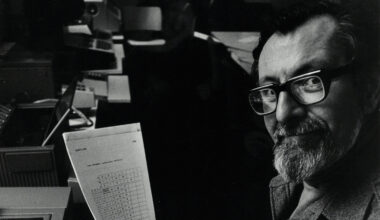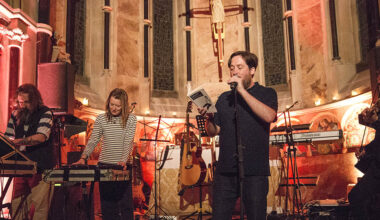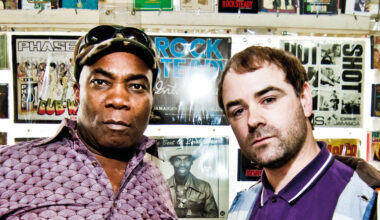From her early days with Einstürzende Neubauten and Malaria! to her role at the head of the fabulously eclectic Monika Enterprise label, Gudrun Gut has long been a potent force and a significant voice on the Berlin music scene. And it looks like she’s only just warming up…
A powerful presence on the Berlin music scene for almost four decades, Gudrun Gut is a punk veteran, an electronic innovator, an experimental composer, a label boss, a radio show host, a visual artist and a feminist icon. She first moved to the old Cold War enclave of West Berlin in 1975 to attend art college, and something of the restless bohemian spirit that brought her here still fuels her open-minded outlook. The art school dance goes on forever.
And whether she’s making music, art or marmalade, Gudrun Gut treats creativity as a communal, immersive, egalitarian activity that cannot be separated from everyday life.
“You don’t necessarily have to be an artist to do music,” she says. “In the old days, my grandmother would play the piano, and she would open the window and people would be dancing in the streets. That’s cool. I have nothing against that. Some people say there’s too much music nowadays but, come on, it’s good for them! Everybody should paint a little too. You don’t need to be an artist to do that either.”
A tireless serial collaborator, Gut’s wildly eclectic back catalogue includes joint projects with fellow composers, singers, poets, painters and filmmakers.
“I like working with other people… I’m a Taurus,” she says with a matter-of-fact shrug. “It’s great to work with others because you get new ideas, you get pushed and you push back. It’s probably from the band thing. My solo albums take a really long time.”
Gut’s latest collaborative venture is her grandest and most ambitious yet. The ‘Monika Werkstatt’ album was born from a collegiate recording session that gathered more than a dozen female electronic artists in the rural woodland region of Uckermark, north of Berlin. The end result is a treasure trove of sonic riches, from Barbara Morgenstern’s squelchy dreamtronica and Pilocka Krach’s disquieting post-rock audioscapes, to Lucrecia Dalt’s bejewelled percussion tapestries, Antye Greie’s fizzing noise collages, and Danielle De Picciotto’s spooky spoken-word reveries, which sound like Laurie Anderson channelling Angela Carter.
When Gut initially had the idea for the album, though, she was daunted by the potentially fissile chemistry of squeezing together so many musicians at a pastoral retreat.
“That was my fear,” she admits. “Solo artists have egos, otherwise they wouldn’t be solo artists. But it was totally fine, they were all really happy. There was some creative tension, which was good, you need that, but no fights. I didn’t do the cooking, lucky Mo Loschelder did the cooking. I was more the driver, because I was the only one with a car. I had to pick up people from the station. There was a weird discussion about pop music one night until four o’clock in the morning, mostly about Justin Bieber. That’s why one of the songs is called after him. Ha!”
Berlin may have made her name, but Gudrun Gut is a country girl at heart. She currently divides her time between the city and the isolated rural house she shares with her long-term partner, Swiss-born composer Thomas Fehlmann, fellow Berlin electronica veteran and on-off member of The Orb.
Born Gudrun Bredemann in 1957, Gut grew up in the rural Lüneberger Heide area in northern Germany. After relocating to West Berlin, she fell in with the so-called Geniale Dilletanten (“Ingenious Dilettantes”) movement that also included future Berlin scene-makers Blixa Bargeld and Alexander Hacke of industrial extremists Einstürzende Neubauten, with whom Gut briefly played in their embryonic form, and Christiane Felscherinow, whose life as a teenage junkie was immortalised in Uli Edel’s 1981 movie ‘Christiane F’.
“I actually wanted to become a filmmaker originally,” says Gut. “I wanted to make experimental films or videos, but then I found out that you have to tell stories. I hate stories. You also have to get lots of money before you start, and you don’t get money back, and it all takes so long. When I was at university, it was the punk time, and the music was much faster. I still like visual art, I still do the visuals for my live shows, but my main thing is music.”
A wilfully amateurish, DIY punk aesthetic dominated the arty-party underground of early 1980s Berlin. Switching between synthesiser, bass guitar and drums, Gut became involved with multiple projects, including all-female free-jazz noiseniks Mania D. That led to her most famous band, angular new wave electro-punks Malaria!, who briefly enjoyed cult success on both sides of the Atlantic. Together with her musical partner in both groups, Bettina Köster, Gut also ran an independent fashion and fanzine shop called Eisengrau. Nobody had any money, but Berlin was cheap and buzzing.

Malaria!, whose exclamation mark was a wry homage to Krautrock legends Neu!, were at one point managed by exiled Mancunian and Factory Records insider Mark Reeder. Gut says Reeder’s archive-heavy 2015 documentary ‘B-Movie: Lust & Sound In West Berlin’ was a welcome reminder of the city’s post-punk scene, which revolved around the grungy but perennially hip Kreuzberg district.
“I don’t remember that much,” she shrugs. “So I was happy that there’s this documentary footage. It was nice to see that because you forget, don’t you? If you live in a city, you get used to the changes. Now you can see that, yeah, most of the houses were grey then. Now Berlin is gentrified and polished… not all of it, but most of it is. It looked pretty different then. It was much poorer.”
Since the fall of the Berlin Wall, the reunited German capital has become a magnet for bands, especially electronic musicians. Consequently, rents have spiralled, as formerly run-down neighbourhoods have been colonised by incoming hipsters and well-heeled professionals, squeezing out the city’s low-budget boho crowd. But Gut has no nostalgia for Cold War Berlin and its much mythologised underground music scene.
“Ach, it’s still cheaper than London,” she grins. “I don’t think it is so hard for an artist because there are a lot of opportunities to play in the little bars and clubs. It’s pretty good for them to try stuff out. But I’m much older than them and I don’t need a little bar to try my new stuff. For me, it doesn’t matter anyway that the city is gentrified. I like that there are lots of new cafes, it’s nice. But I mostly work, so I don’t really have time to sit in a cafe.”
But is an enthusiast for the liberating power of digital communication and composing technology. She recalls the days when she had to physically send copies of her music to Britain and America by Federal Express. In those pre-laptop electro-punk times, she used to play primitive Korg and Moog synthesisers. Nowadays, she is a keen convert to Ableton Live software, although she sometimes still craves the fizz and crackle of analogue instruments.
“These last few years, I’m working again with drum machines and stuff, more like real tools, without even opening a computer,” she says.
The ‘Monika Werkstatt’ album coincides with the 20th birthday of Monika Enterprise, the independent label founded by Gut and named after her pet goldfish, who reportedly “committed suicide”. Yes, you read that correctly.
“She just jumped out of the water!” Gut frowns. “They do that. I mean, I didn’t take too good care of her and then suddenly it was… plop!”
Gut launched Monika primarily as a platform for female electronic artists, which both reflects her personal taste and is also an inescapable feminist statement in the wider context of the male-dominated music industry.
“I listen to mostly female music for inspiration,” she explains. “As a record label, it’s pretty much a personal choice as well. I have some male artists too, I have nothing against male artists, but I just concentrate on my niche… which makes up 50 per cent of the population. Ha!”
Questions about a feminist political agenda rattle Gut, who notes that journalists never ask mainstream music labels why they mostly sign male artists. As a co-founder of the Female:Pressure network, which helps to promote women and non-binary artists in electronic music, she is hyper-aware of patriarchy’s malign gravitational pull, even in the supposedly more progressive realm of digital music.
“Especially in the electronic scene, it’s ridiculous!” Gut says with exasperation. “For me, this is really shocking. In the 1980s, it all looked pretty equal to me, but it’s not anymore. It’s obvious nothing happened! It’s a boy’s club, the music scene. Really bad.”
Get the print magazine bundled with limited edition, exclusive vinyl releases
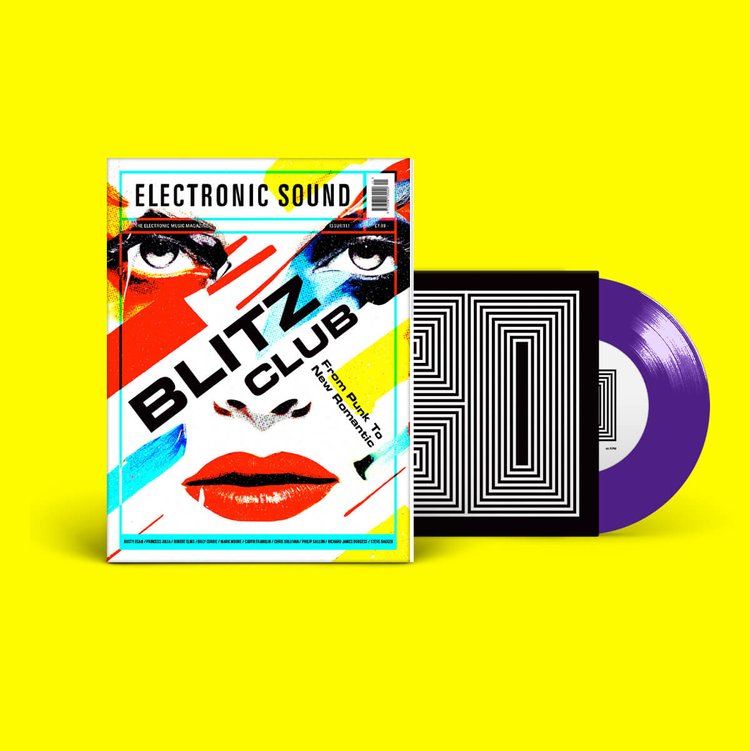
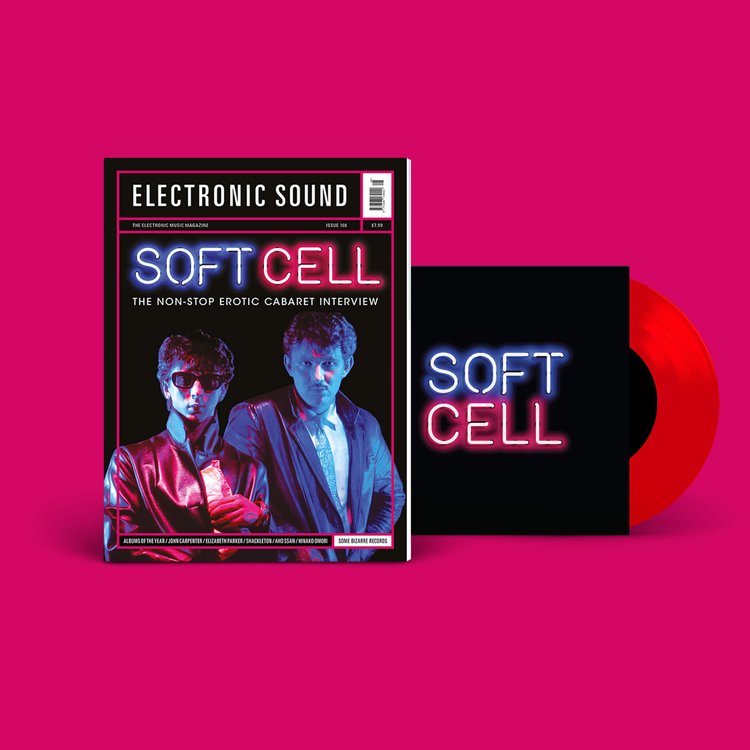
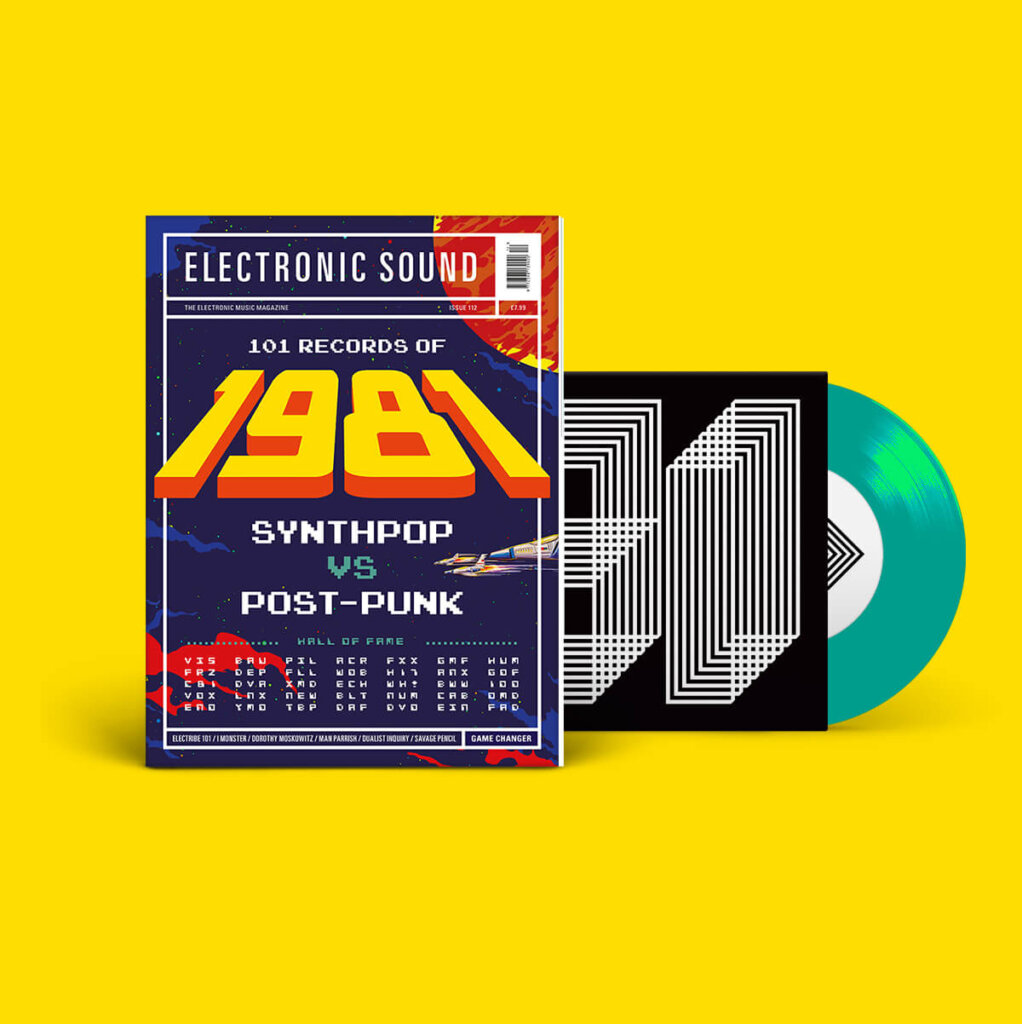
Money changes everything, of course. In the innocent early years of Berlin’s arty post-punk scene, Gut is right to suggest that male and female artists seemed like equals. Then record contracts, success and fame came along, and the old gender inequalities reasserted themselves. It’s depressing that we are still having this discussion in 2017.
“It’s because change is slow,” Gut sighs. “Women couldn’t even vote in the last century. There are still countries in the world where women are not allowed to drive a car. So it is going to change, but it takes time. I am pretty strict, especially on the money side. I try to really get good wages for the artists because I think it’s important. Women get paid less than men anyway. That’s totally wrong.”
Gudrun Gut has enjoyed a long and varied career on the avant-pop fringes, but she has never achieved lucrative mainstream popularity. In 2014, she even posted her annual government pension statement online, which projected her future retirement earnings at close to poverty levels.
“Yes, it’s coming!” she says with a bitter laugh. “This is a real problem if you are self-employed in Germany. My pension will be €250 a month or something. How can I live off that? And a lot of artists have less than that. I have additional private insurance but it’s still nothing.”
One possible solution might be for Gut to reform Malaria!, whose critical reputation has blossomed in the 30-plus years since they disbanded. Given the growing connoisseur interest in vintage cult acts, a reunion tour could even be a healthy pension plan. Indeed, Gut confirms that the band have had offers to reform over the years, but “not high enough”.
“Yeah, we have a price tag!” she laughs. “If we got a million dollars to play Coachella, we might do it. But we won’t do it just like that, because the times are different. I talk to Bettina sometimes, it is us who have to make the decision, and we don’t want to do it at the moment.”
Perhaps, like a proper old school bohemian artist, Gut dreams of dying a penniless ruin?
“No, I don’t think so,” she frowns. “I can always make marmalade and sell it on the street.”
‘Monika Werkstatt’ is out on Monika Enterprise

